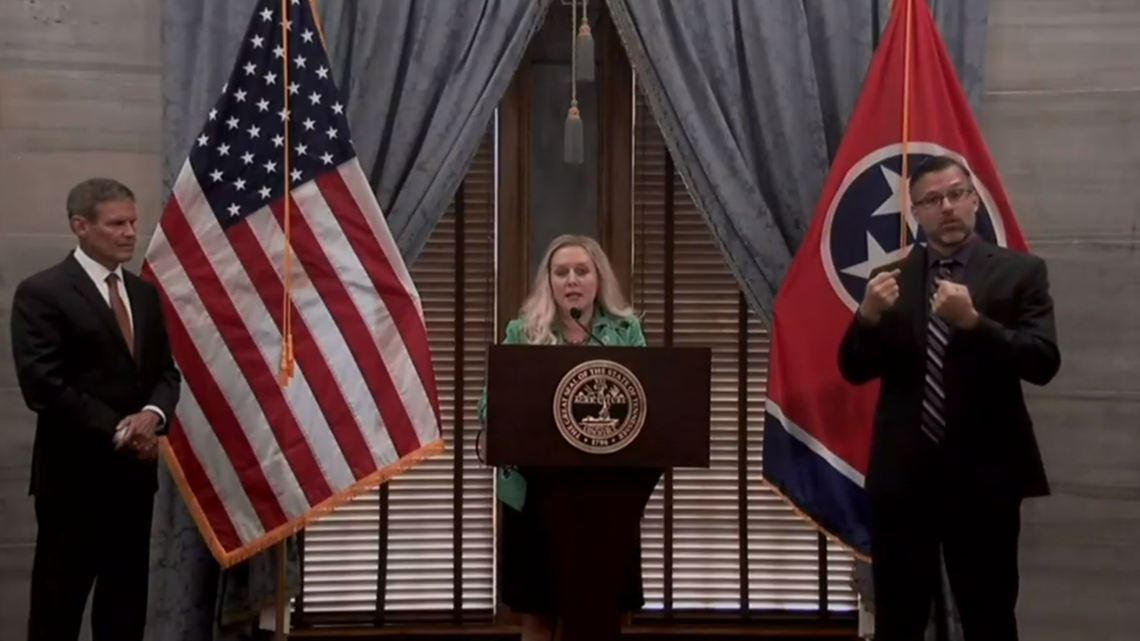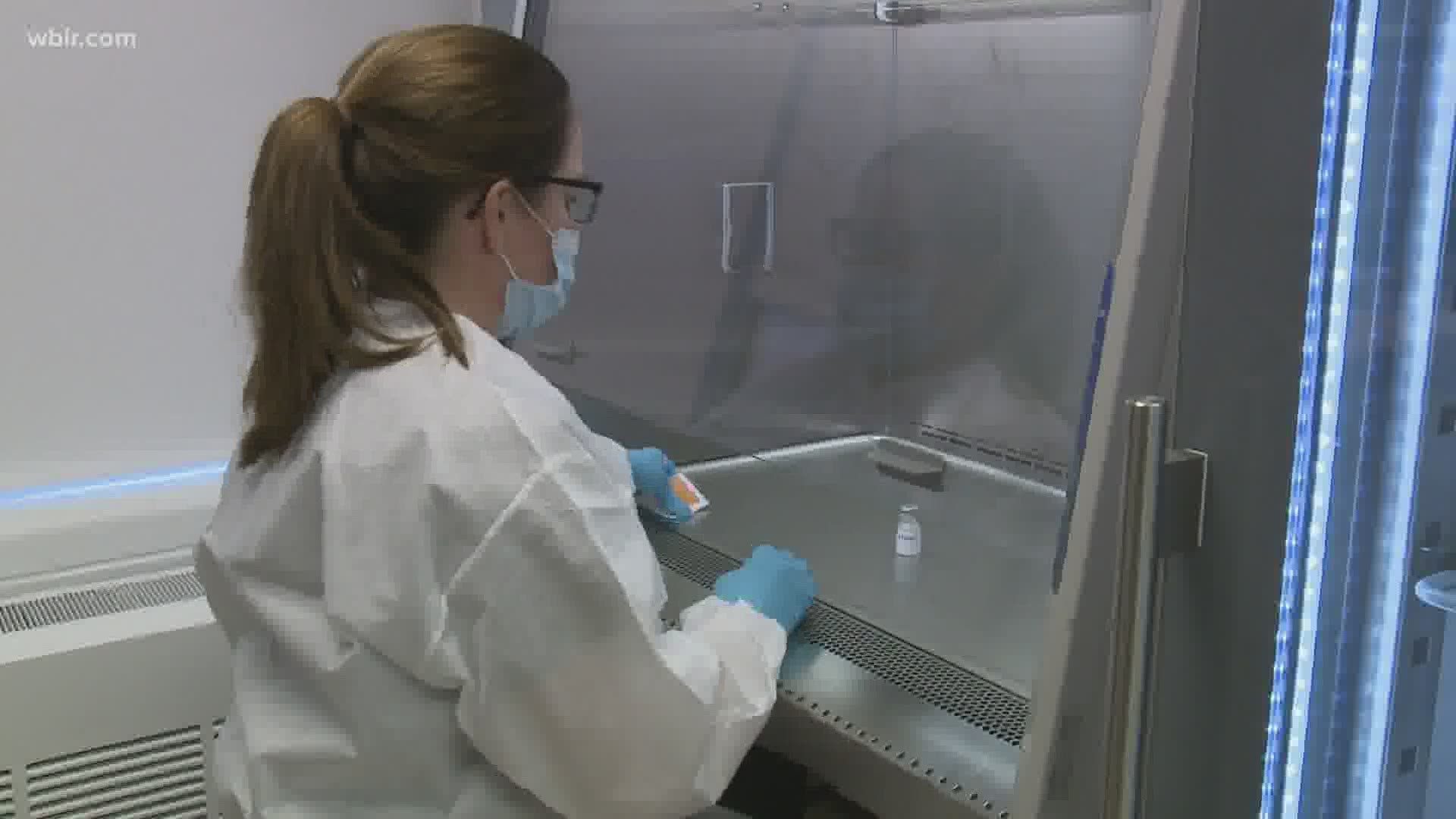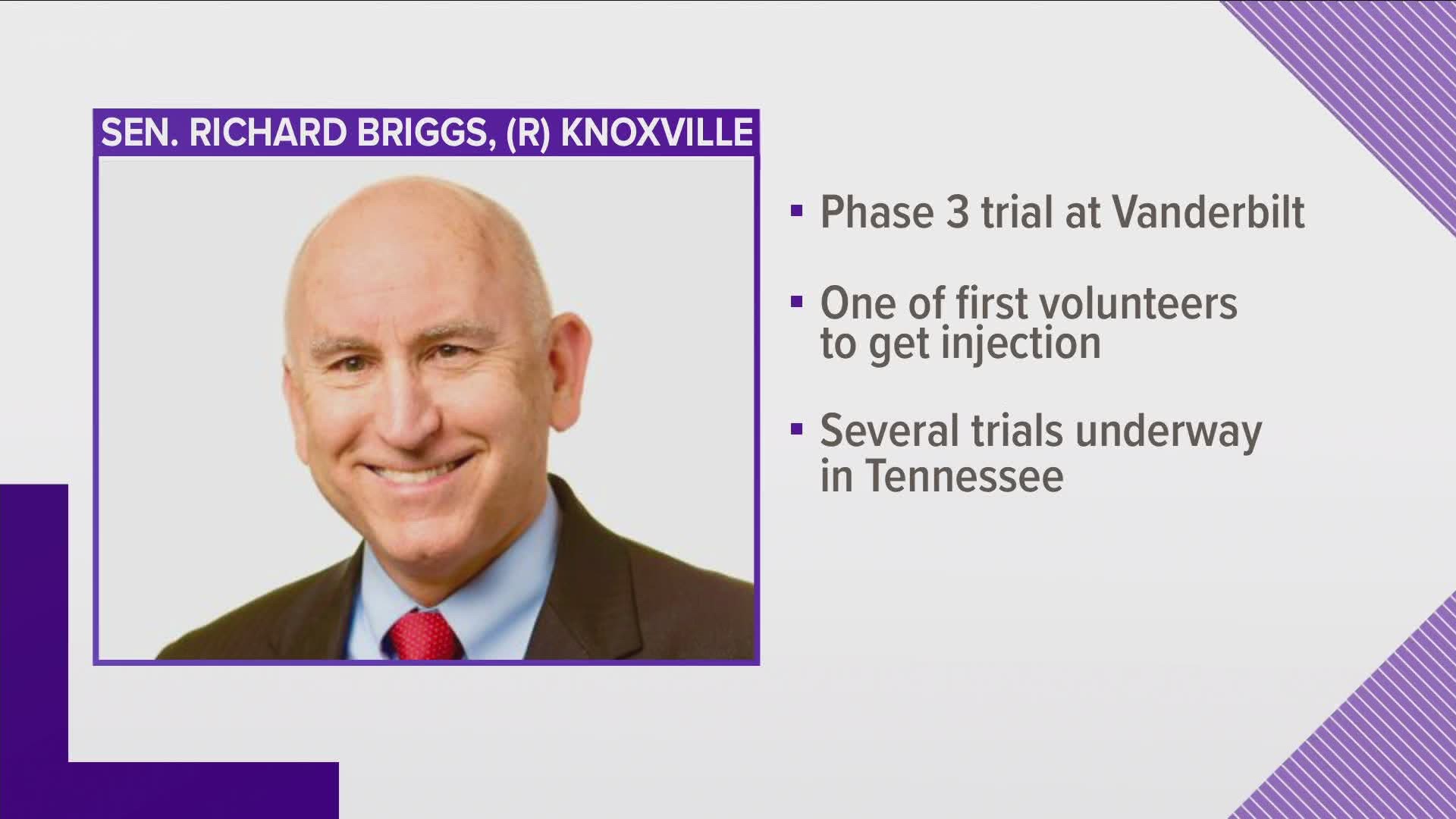Gov. Bill Lee said Thursday he's encouraged that Tennessee may get COVID-19 vaccines in November for distribution in the state, but health officials cautioned many details about the doses must still be worked out.
Lee said there were "many miles to go" before a vaccine is approved, but the CDC has indicated one could be ready as soon as Nov. 1.
State Health Commissioner Dr. Lisa Piercey said she took "with a grain of salt" a reported Nov. 1 date and is assuming more broadly that Tennessee could get vaccine doses some time in November.
The state could get something like a couple hundred thousand doses, which would be reserved first for the most vulnerable of the population. Children and pregnant mothers wouldn't be eligible for this round, she said.
"It will not be millions and millions of doses," Piercey said.
The state might get two vaccines that are currently undergoing what's called Phase 3 testing, she said. The process typically takes many, many months, but the federal government has been pushing to give Americans a COVID-19 vaccine in what's dubbed Operation Warp Speed.
Piercey said she couldn't confirm which manufacturer would be providing the vaccines. A number are under development.
Lee said his administration was working to develop a distribution plan to get vaccines to the needy.
Taking it,however, will be a personal decision each individual should make after consultation with their doctor, Lee and Piercey said. Lee said he'd check with his doctor first before agreeing to get a vaccine.
The federal government has begun providing states with guidance on how distribution will work, Piercey said.
Piercey said because the testing program is now in the third phase that safety of the medicine has been relatively established.
Phase 3 trials won't be finished by November, but limited vaccine quantities will be available, she said.
Other states have said they're still waiting to get more information.


"We haven't gotten a lot of information about how this is going to roll out," said Dr. Umair Shah, executive director of Texas' Harris County Public Health department, which includes Houston.
In a four-page memo this summer, the federal Centers for Disease Control and Prevention told health departments across the country to draft vaccination plans by Oct. 1 "to coincide with the earliest possible release of COVID-19 vaccine."
But health departments that have been underfunded for decades say they currently lack the staff, money and tools to educate people about vaccines and then to distribute, administer and track hundreds of millions of doses. Nor do they know when, or if, they'll get federal aid to do that.
The CDC guidance is asking for health officials in all 50 states and five large cities to be ready to distribute vaccines to high-risk groups and healthcare workers as soon as late October or early November.
Dozens of doctors, nurses and health officials interviewed by Kaiser Health News and The Associated Press expressed concern about the country's readiness to conduct mass vaccinations, as well as frustration with months of inconsistent information from the federal government.
The gaps include figuring out how officials will keep track of who has gotten which doses and how they'll keep the workers who give the shots safe, with enough protective gear and syringes to do their jobs.
With only about half of Americans saying they would get vaccinated, according to a poll from AP-NORC Center for Public Affairs Research, it also will be crucial to educate people about the benefits of vaccination, said Molly Howell, who manages the North Dakota Department of Health's immunization program.
TEGNA contributed to this story.


